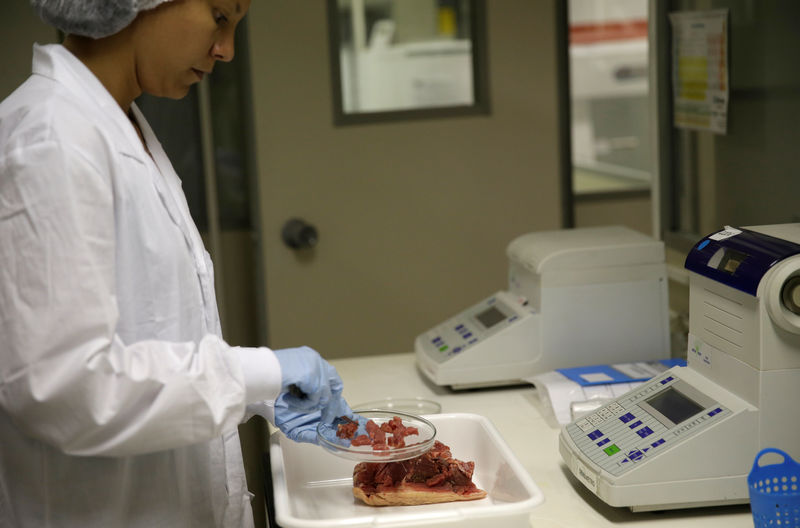By Stephen Eisenhammer
BRASÍLIA (Reuters) - Hong Kong said on Tuesday it has lifted a ban on the import of Brazilian meat, removing one of the last blanket bans by a major importer, but strong words from an EU commissioner visiting Brazil suggests the scandal over health standards is not over yet.
"A suspicion of corruption is unacceptable," Vytenis Andriukaitis, EU commissioner for health and food safety, told reporters after meeting with Brazil's Agriculture Minister Blairo Maggi to discuss police allegations that government regulators were paid bribes to turn a blind eye to breaches of sanitation rules.
The Operation "Weak Flesh" probe has hit exports from the world's top beef and poultry exporter. Meat exports fell by around a fifth last week, the trade ministry said.
Andriukaitis said he was happy with Brazil's attempts to clarify the situation but also urged broader action.
"I expect Brazilian authorities to implement corrective actions to restore the credibility of their official controls as soon as possible," he said, adding "the question is not over."
The comments demonstrate the uphill struggle Brazil now has to restore credibility in the competitive global market even as the immediate problem of import bans subsides.
Hong Kong's Center for Food Safety said it eased the ban on Brazilian meat and poultry imports after it received further information from Brazilian authorities, according to statement on its website.
Hong Kong had been one of several major buyers of Brazilian meat that froze imports after Brazil's federal police arrested dozens of people on March 17 and made allegations of corruption in the meat industry. No formal charges have been announced.
Brazil's government moved to block exports from the 21 plants directly implicated in the probe and urged importers to restrict bans to just these units as it campaigned to inform trade partners about standards in the industry, one of the few sectors to have bucked a painful recession in the country.
Most countries have now followed that guidance.
Together with China, which lifted its ban on Saturday, Hong Kong bought nearly one-third of the $14 billion (£11.25 billion) of meat that Latin America's largest economy exported last year.
Hong Kong narrowed its ban to just the 21 plants and voiced confidence in "Brazilian authorities' stringent checks on the procedures for issuing international health certificates."
Agriculture minister Maggi said investigators had not found any products that could harm the health of consumers, but conceded Brazil faced a struggle to recover its market share.
EU officials and their Brazilian counterparts will meet in Brasilia on Thursday to continue discussing the implications of the police probe, Maggi told reporters after talks with Andriukaitis.
The commissioner said during the talks that there was pressure from European consumers to clarify whether Brazilian meat was safe, Maggi said. He said the probe was an isolated problem exaggerated by the federal police.
Brazil has ordered the temporary closure of six of the 21 food processing plants under investigation by the police and health authorities. The other 15 plants are not allowed to export, although they may still produce for the domestic market.
The European Union has maintained a partial ban on products from the 21 meatpacking plants under investigation.

In the United States, pressure is mounting on the federal government to join other nations blocking shipments of raw beef from Brazil. Brazil only gained access to the U.S. market for fresh meat last year, an important seal of approval for other importers.